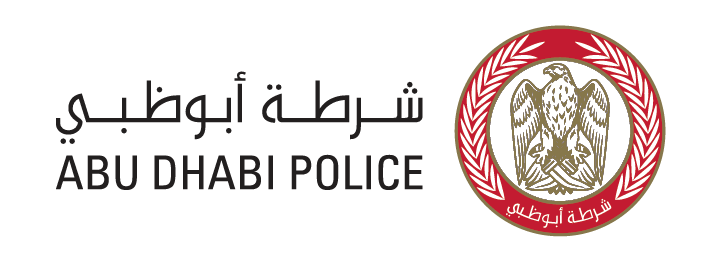
The Vehicles and Drivers Licensing Department organized an awareness-raising program for staff members and the public, under the theme “What is MERS Coronavirus?”. The program, held in collaboration with the Health Authority – Abu Dhabi, was attended by a large number of officers and individuals and highlighted the causes of the disease, its symptoms, diagnosis and treatment, in addition to answering questions and distributing leaflets about the virus and prevention and treatment methods.
During his lecture, Dr. Ahmed Abdullah, Senior Officer, Communicable Diseases Department at the Health Authority - Abu Dhabi (HAAD), indicated that the MERS Coronavirus is a SARS-like virus. “At the same time it’s a new kind of virus, and we still don’t know much about its properties and ways of transmission,” indicated Dr. Abdullah. Moreover, he pointed out that all healthcare providers and agencies across the country are working in close collaboration with the World Health Organization (WHO) and international experts to deal with the virus.
He added that the virus, which does not yet have pandemic potential, was first reported in 2012, when a Dutch person was infected. Later, it began to circulate widely throughout several Arab countries. “Most people who got infected with MERS-CoV developed severe acute respiratory illness with symptoms of fever, cough and shortness of breath. Children, elderly people and those with weak immune system or chronic diseases are most vulnerable to the infection are most vulnerable to the infection,” pointed out Dr. Abdullah.
Adding further, he said: “The primary source of infection is still not known. So far there is growing evidence that the transmission of coronavirus is in common with many other respiratory viruses such as the cold virus and influenza. The infection can occur either directly through droplets from coughing or sneezing or indirectly through touching contaminated objects or surfaces as well as close contact, such as touching eyes, nose and mouth or shaking hands. MERS-CoV has also spread from ill people to others through close contact, such as caring for or living with an infected person.”
“It is very important to observe the health guidelines so as to prevent the MERS Coronavirus,” stressed Dr. Abdullah. He said that people should help protect themselves by taking everyday preventive actions, as follows: wash hands thoroughly with soap and water and hand sanitizers that contain disinfectants; cover the nose and mouth with a tissue when coughing or sneezing then throw the tissue in the trash; avoid touching the eyes, nose and mouth with unwashed hands to avoid infection from touching contaminated surfaces. During the Hajj or Umrah, pilgrims are urged to wear medical masks as a preventive measure against MERS-CoV infection.
At the end of the lecture, Dr. Abdullah said that there is no vaccine available for this infection. He highlighted the best ways to treat symptoms, using cough medicines, painkillers and specific antivirals. “In some cases, patients were able to clear the virus within 10-14 days,” he continued.
During his lecture, Dr. Ahmed Abdullah, Senior Officer, Communicable Diseases Department at the Health Authority - Abu Dhabi (HAAD), indicated that the MERS Coronavirus is a SARS-like virus. “At the same time it’s a new kind of virus, and we still don’t know much about its properties and ways of transmission,” indicated Dr. Abdullah. Moreover, he pointed out that all healthcare providers and agencies across the country are working in close collaboration with the World Health Organization (WHO) and international experts to deal with the virus.
He added that the virus, which does not yet have pandemic potential, was first reported in 2012, when a Dutch person was infected. Later, it began to circulate widely throughout several Arab countries. “Most people who got infected with MERS-CoV developed severe acute respiratory illness with symptoms of fever, cough and shortness of breath. Children, elderly people and those with weak immune system or chronic diseases are most vulnerable to the infection are most vulnerable to the infection,” pointed out Dr. Abdullah.
Adding further, he said: “The primary source of infection is still not known. So far there is growing evidence that the transmission of coronavirus is in common with many other respiratory viruses such as the cold virus and influenza. The infection can occur either directly through droplets from coughing or sneezing or indirectly through touching contaminated objects or surfaces as well as close contact, such as touching eyes, nose and mouth or shaking hands. MERS-CoV has also spread from ill people to others through close contact, such as caring for or living with an infected person.”
“It is very important to observe the health guidelines so as to prevent the MERS Coronavirus,” stressed Dr. Abdullah. He said that people should help protect themselves by taking everyday preventive actions, as follows: wash hands thoroughly with soap and water and hand sanitizers that contain disinfectants; cover the nose and mouth with a tissue when coughing or sneezing then throw the tissue in the trash; avoid touching the eyes, nose and mouth with unwashed hands to avoid infection from touching contaminated surfaces. During the Hajj or Umrah, pilgrims are urged to wear medical masks as a preventive measure against MERS-CoV infection.
At the end of the lecture, Dr. Abdullah said that there is no vaccine available for this infection. He highlighted the best ways to treat symptoms, using cough medicines, painkillers and specific antivirals. “In some cases, patients were able to clear the virus within 10-14 days,” he continued.

